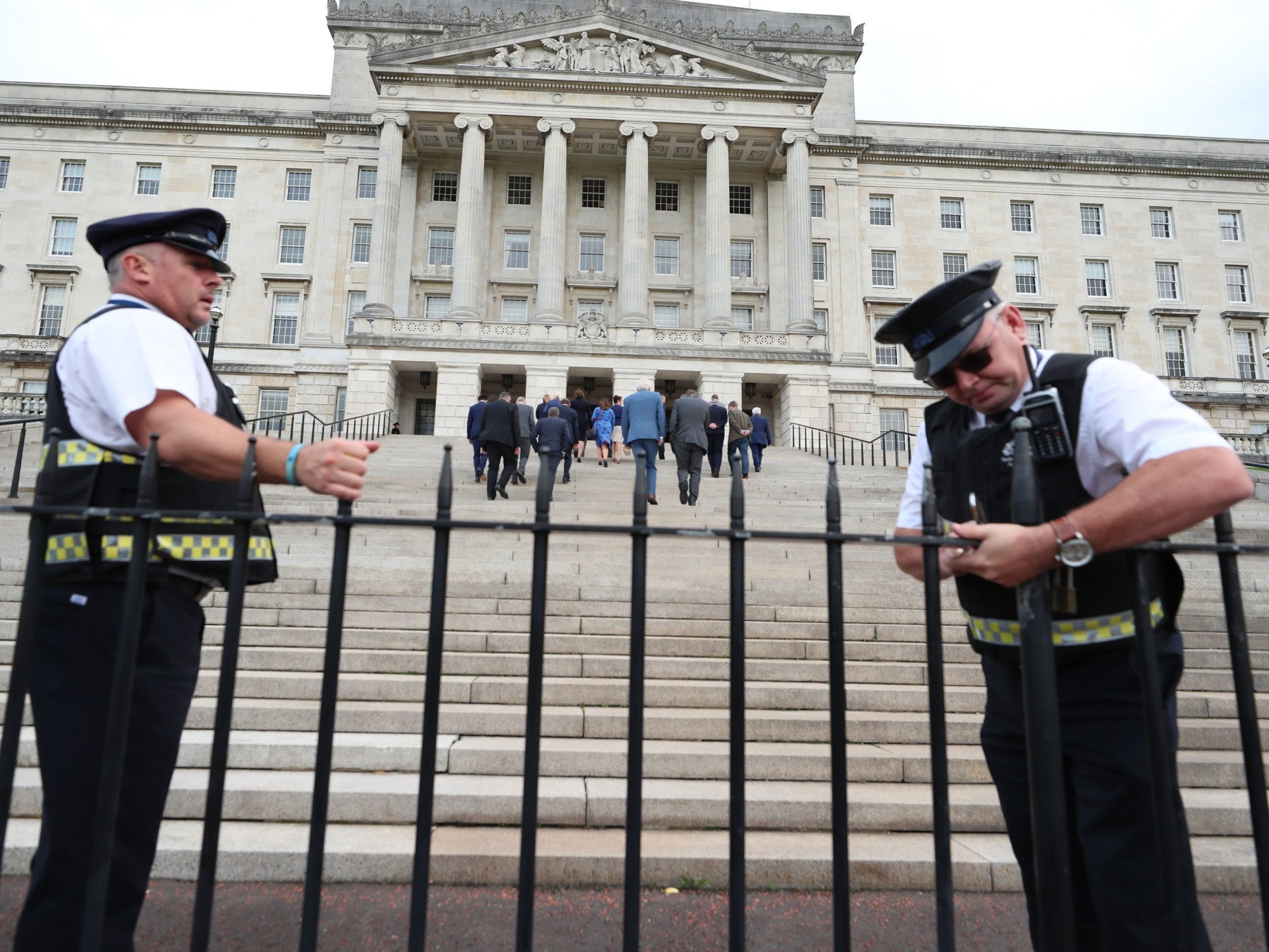Suicide rates in Northern Ireland are rising – it’s easy to see why, yet the government is doing little about it
A suicide prevention strategy is just one of numerous bills unable to be implemented since the collapse of talks at Stormont in January 2017


Figures released this week by the Northern Ireland Statistics and Research Agency showed that 305 people died by suicide in Northern Ireland during 2017.
That amounts to six deaths a week by suicide, a slight increase from the 2016 figure of 298 but tragically double that recorded 20 years ago in 1998, the year the Good Friday Agreement was signed.
Although meant to signal renewed prosperity in Northern Ireland, the years that followed brought with them a drastic increase in lives lost due to suicide. From 2016 onwards the number of deaths by suicide since the signing of the Good Friday Agreement has outstripped the total number of people killed during the Troubles. In contrast, over the same time period the rest of the United Kingdom has witnessed a steady downward trend in suicide rates. Commenting on the 2017 suicide registrations, the Office for National Statistics remarked that it was one of the lowest annual rates recorded since records began in 1981.
Not only do suicide rates look different in Northern Ireland, so too do those taking their own lives. In the rest of the UK those most at risk are men aged between 40 and 44; in Northern Ireland, it’s men between 25 and 29. They have grown up under the shadow of the Troubles, and come of age in the years of austerity and increasing precarity.
Suicide is multifaceted, and no single explanation can be given for someone taking their own life, but research has consistently attested to the experience of deprivation, poverty and mental health problems as key risk factors. Research by Siobhan O’Neill, a professor at Ulster University, has looked into the impact intergenerational trauma has on this generation, many of whom may have grown up in poverty in a post-conflict society and are still struggling to process the violence they experienced and witnessed.
This week’s figures will not be news to many in Northern Ireland who are well aware of the toll mental distress and suicide has on their communities, and are also aware of the lack of political wherewithal to deal with this.
To coincide with World Mental Health Day on 10 October, Theresa May announced that every local area would be provided with its own effective suicide prevention plan. This statement might have been of some solace to those in Northern Ireland had such a document not already been drafted almost two years ago, which is currently awaiting ministerial signature and executive sign off.
The suicide prevention strategy Protect Life 2 is just one of numerous bills unable to be implemented since the collapse of talks at Stormont in January 2017. The strategy aimed to address repeated self-harm as a risk factor for suicide, as well as focusing on supporting those who have been bereaved by suicide and improving responses to those experiencing suicidal behaviour.
Reassuring though it might be to believe, a sitting Stormont and the enactment of Protect Life 2 would be unable to adequately deal with the levels of mental distress currently being experienced across the country. Concerns were previously raised that the draft strategy was too narrow in focus, with a primary emphasis on people already in contact with mental health services. Research has suggested that of those who take their own lives, only a third will have previously been under the care of mental health services. And despite having levels of mental distress 25 per cent higher than the rest of the United Kingdom, Northern Ireland’s mental health services receive 20 per cent less funding, meaning many of those most at risk may never even encounter these overstretched services. Those who do may be faced with underfunded services ill equipped to provide the time and space to implement trauma-informed approaches to mental distress.

In addition, despite the best of intentions, any suicide prevention strategy aimed at supporting those who repeatedly self-harm will be unable to address the root cause of the 35 per cent of the LGBT community who self-harm (compared to 13 per cent in the rest of the UK), in a country where 33 per cent of the population rejects their right to equal marriage. And while all of Northern Ireland bears the burden of the Troubles, women, who are 66 per cent more likely to be prescribed antidepressants than men, must face archaic anti-abortion legislation that still treats them as second class citizens, reminding them their bodies are not their own.
At a time when Brexit negotiations remain at an impasse, and fears that a bad deal or misstep on the Irish border risk opening old wounds, we’re seeing a narrative where violence in Northern Ireland is continually bubbling under the surface.
What this week’s figures highlight is that for decades now a slow form of violence has already been playing out across Northern Ireland. The underfunding of vital services and a political culture based on stubborn “us v them” attitudes leaves no space for distress to be heard or trauma to be addressed. These are the wounds that need to be focused on now more than ever.
Nic Murray is a mental health researcher and convener with the London Irish Abortion Rights Campaign
If you have been affected by this article, you can contact the following organisations for support:
Mind.org.uk
nhs.uk/livewell/mentalhealth
mentalhealth.org.uk
samaritans.org
Join our commenting forum
Join thought-provoking conversations, follow other Independent readers and see their replies
Comments
Bookmark popover
Removed from bookmarks